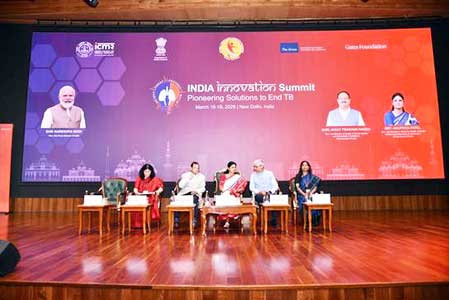The Queen Mary’s Hospital (QMH) of King George’s Medical University (KGMU) has initiated a special training programme for doctors and nurses engaged in women’s healthcare at government hospitals and community health centres (CHCs) in primary and secondary care.
The programme will educate the participants in early diagnosis of cervical cancer.
KGMU officials said that in UP, approximately 50 women are diagnosed daily with cervical cancer and half of them die during treatment.
Prof SP Jaiswar, medical superintendent of QMH said “This programme will enable timely disease control via early detection because deaths from cervical cancer in UP may be higher than WHO’s death rate (56 per cent) as most cases are diagnosed at an advanced stage. Late diagnosis limits options for many UP patients. About 17,600 cervical cancer cases are reported in UP.”
Jaiswar said that doctors from across the state are invited for detailed training on the issue. It is organised jointly by State Institute of Health and Family Welfare and NHM and aims to improve patient outcomes and treatment success.
Hospital spokesperson Prof Rekha Sachan said under the training, gynaecologists, emergency officers and surgeons will be trained to identify early cancer signs.
They will be informed about techniques in which cervical cells are collected for the LBC test or HPV test to identify presence of Human Papillomavirus (HPV).
She said the Centre recommends that every woman, who is 35 years of age and sexually active, should get her LBC test done every three years. If the results are normal, they can wait for three years until their next test.
For individuals aged 30-65 years, doctors assess the testing options for HPV presence. If the results are normal, the next screening test can be delayed for three years.
Alternatively, co-testing with both HPV and LBC tests can be performed. If both results are normal, patients can wait for five years until their next screening.
Besides, doctors are being trained in Visual Inspection with Acetic Acid (VIA) and Visual Inspection with Lugol’s Iodine (VILI) as examinations of the uterine cervix.
These tests are essential in detecting and preventing cervical cancer. The tests can identify precancerous and cancerous cells.
“If precancerous cells are found, thermal ablation technology available in district hospitals can be used for their removal,” said Sachan.






DoNER Ministry facilitate in unlocking Manipur’s growth: Scindia
Union Development of North Eastern Region (DoNER) Minister Jyotiraditya Scindia on Thursday said that he is confident that his ministry would serve as a proactive facilitator in unlocking new opportunities and accelerating Manipur’s growth and development.
National Herald case: Congress protests outside ED offices in northeastern states
Congress leaders claimed that through false allegations, the Enforcement Directorate (ED) under the direction of the Central government filed a chargesheet against the party's Parliamentary Party Chairperson Sonia Gandhi and Leader of Opposition (LoP) Rahul Gandhi, among others.
Seven cops injured during anti-Waqf Act rally in Tripura
At least seven policemen sustained injuries on Saturday during a clash between the security personnel and the agitators who held a protest rally against the recently enacted Waqf (Amendment) Act in northern Tripura’s Kailashahar under Unakoti district.
68 tonne areca nuts worth Rs 5.87 cr smuggled from Myanmar seized in Manipur
After Mizoram, the Assam Rifles have seized 68 tonnes of smuggled areca nuts worth Rs 5.87 crore in Manipur’s Kangpokpi district, officials said on Friday.